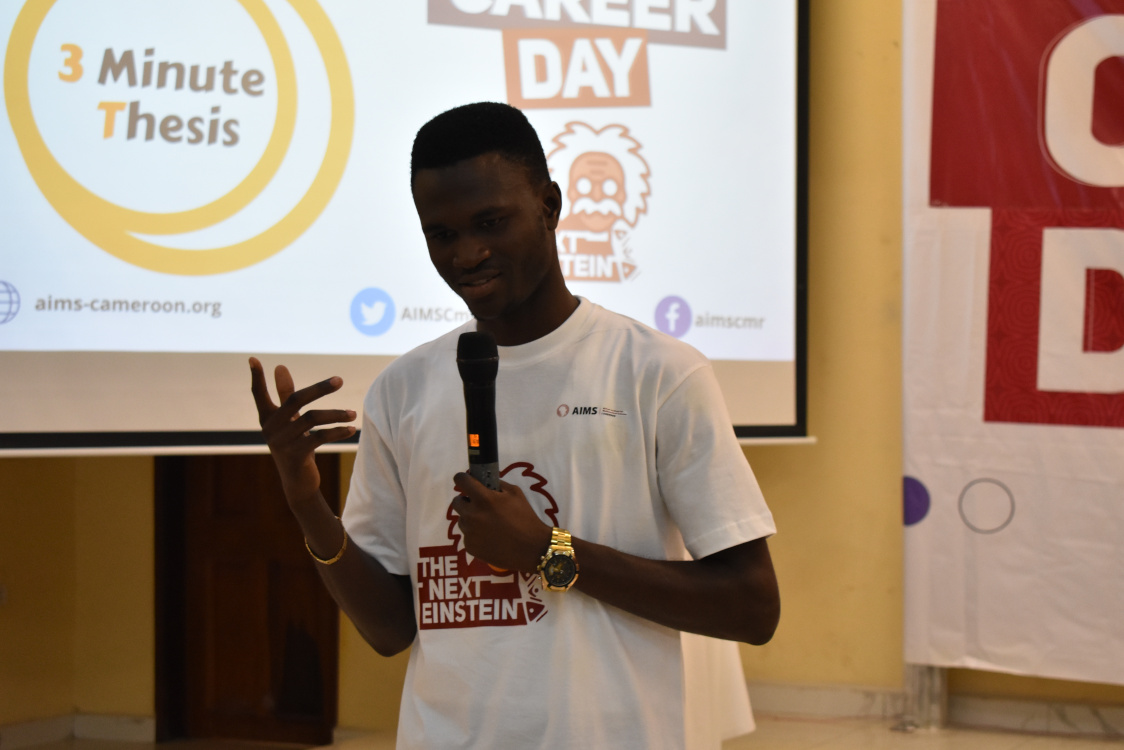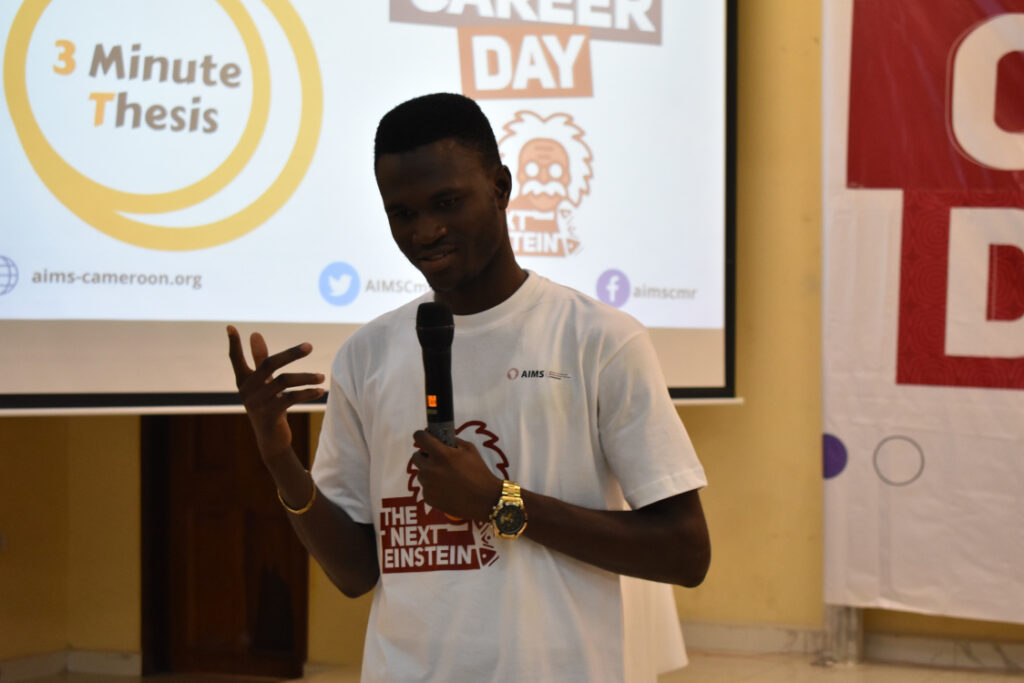
Samuel Ayomide Adeosun, a Yoruba man from Nigeria, excelled in Mathematics at the Federal University of Agriculture, Abeokuta. He was recognized as the best student in the Faculty of Physical Sciences and received prestigious awards most notably the National Mathematical Centre award. Although initially unable to attend AIMS-Cameroon in 2021 due to national service obligations and passport issues, he was admitted the following year.
As a Mastercard Foundation Scholar at AIMS-Cameroon, Samuel studied advanced topics in pure and applied mathematics and undertook research supervised by Dr. Woldegebriel Assefa Woldegerima from York University. Their investigation focused on developing a mathematical model to analyse the impact of temperature and rainfall on the spread of malaria: a case study of Sokoto State, Nigeria, considering the effects of global warming.
In addition, Samuel had the privilege of leading the dedicated Hospital and Prison Give-Back team, which aimed to educate the staff at Limbe Regional Hospital on the effectiveness of Microsoft Excel as a tool for understanding and visualizing data in order to improve patient healthcare. He also led the Gender Club and organized events such as Breast Cancer Awareness Day, International Day of Women and Girls in Science, International Women’s Day, and International Women in Mathematics Day.
In addition to his leadership roles, Samuel led the Music and Drama teams, served as the Master of Events for the AIMS-Cameroon 2023 Cultural Day and Career Fair Day. He also participated in the 3 Minutes Thesis competition, where he won the second prize and received a cash award. Furthermore, Samuel had the opportunity to take part in the AIMS-ESMT Industry Immersion Programme, which facilitates the transition of AIMS alumni from a scientific environment to an applied industry setting.
Currently, Samuel is pursuing a Ph.D. in the department of Mathematical Stochastics at the Albert Ludwig University of Freiburg. His research is an interdisciplinary one exploring the following subjects – probability theory, mathematical stochastics, population genetics, and bioinformatics.

